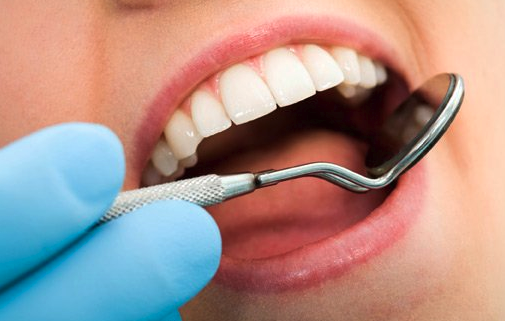Sugar and Your Teeth: 4 Common Questions
It’s no secret that sugar is bad for your teeth. You probably first learned this in grade school, and if you’re like many patients, you feel a twinge of guilt every time you reach for a sugary drink, knowing that you have a dental checkup coming up. But beyond the fact that sugar leads to cavities, how much do you really know about the relationship between sugar and dental health?
Here are four common questions patients have about this sweet and tempting substance.
1. How Does Sugar Cause Decay?
Sugar causes tooth decay because your mouth is filled with oral bacteria that love to feed on the sugar. When these bacteria consume sugar, they release acid as a byproduct. The acid is actually what causes tooth decay. It slowly erodes your enamel – the hard outer covering of your teeth. Once the erosion has worked its way through the entire enamel layer, you have what is known as a cavity.
Some people are more prone to tooth decay than others because they have a greater population of oral bacteria or weaker tooth enamel. However, nobody is immune to tooth decay.
2. Is the Sugar in Fruit Bad for Teeth, Too?
Fruits like apples and bananas are often touted as healthy snacks, but since they do contain a lot of sugar, you may fear they’re not good for your teeth. But you don’t need to avoid fruit entirely. Fruit is a good source of vitamins and minerals, and when you consume fruit in moderation, the effects of sugar are minimal.
Fruit is also high in fiber, so the sugars do not have as much direct contact with your teeth as they do in candy or soda. You can also reduce your risk of decay by choosing lower-sugar fruits, like berries, peaches, and apples, over more sugary fruits, like pineapple and mango.
What you do want to avoid as much as possible are fruit juices. They have a higher concentration of sugar than whole fruit, and drinking them bathes your teeth in sugar – much like drinking soda.
3. Is Sugar-Free Soda a Safe Choice?
Since the sugar in soda is so bad for your teeth, you may reason that sugar-free or diet soda would be a safe choice. Sadly, this isn’t the case. Even though it does not contain sugar, diet soda is still very acidic. Drinking it too often can still weaken your tooth enamel, making the enamel more susceptible to decay when you do eat sugar.
Minimize your intake of regular and diet sodas. If you do drink soda of any type, try drinking it through a straw, as this will minimize contact between your teeth and the liquid.
4. Should You Brush Your Teeth After Eating Sugar?
Brushing after eating something sugary can be helpful – but only if you wait an hour between eating and brushing. Immediately after eating something sugary, your teeth are being attacked by acids, which makes the enamel soft and weak. Brushing at this time can wear away and weaken your enamel even further.
Wait an hour after eating before brushing and the enamel will have hardened and will be less prone to damage. While you’re waiting, you can rinse your mouth with plain water to help get rid of lingering sugars and acids.
There’s no doubt about it: minimizing your sugar intake is an easy way to prevent tooth decay. You should also brush your teeth twice a day using a fluoride toothpaste, and see your dentist regularly for checkups and cleaning appointments.
If you’re looking for a new dentist in the Melbourne area, contact Richard W. Leong Jr., DDS, PA to schedule an appointment.





